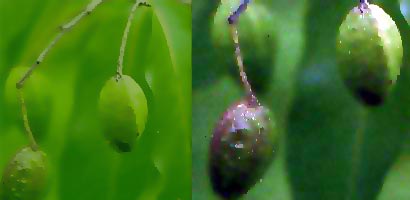Herbs : Hardh
Latin Name
Terminalia chebulaSanskrit Name
Haritaki
Hindi Name
Hardh
English Name
Chebulic Myrobalans, Indian GallnutParts Used
Fruit (not a nut). Each plant and part has a different therapeutic value and must be prepared in its own way for maximum benefits. This tree is found wild in the forests of northern and central India, Bengal, Madras, Mysore, and the southern Bombay Presidency.
Traditional Ayurvedic Uses
- Haritaki is known as a top-notch rasayana fruit in ayurveda. It is traditionally said to be as safe and nurturing as mother's milk.
- It detoxifies and nourishes all the dhatus (body tissues).
- In combination with Emblic Myroblans and Beleric Myrobalans, it forms the famous ayurvedic remedy Triphala.
- There are six tastes in ayurveda -- sweet, sour, salty, bitter, pungent and astrigent. Haritaki contains five out of the six tastes -- all except salty. So it is a rasayana suitable for everyone.
- There are seven varieties of Haritaki, and Vijaya is considered the superior variety of this fruit. Maharishi Ayurveda formulations are all prepared with the Vijaya variety for the best rasayana value.
- Haritaki is considered good for constipation and has antioxidant properties. It has positive effects on the hair, skin, eyes and liver.







